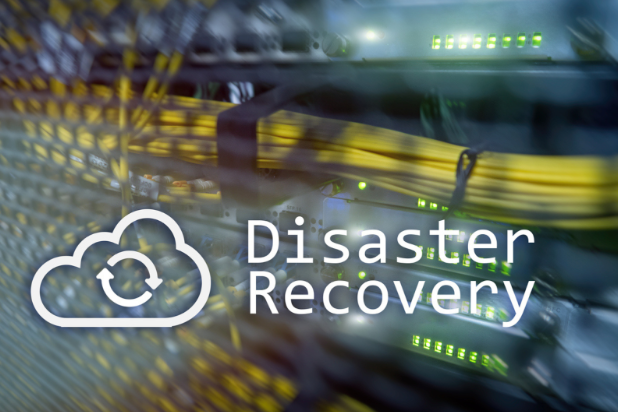Data is the lifeblood of modern businesses. Customer data, financial records, and operational data – these aspects form the foundation upon which companies build their strategies and make informed decisions.
Any loss or compromise of this data could have severe consequences, ranging from financial setbacks to reputational damage. Below, we will provide valuable information about this to help you understand it deeply and ensure business continuity.
Data Backups Defined
Data backups are a critical aspect of modern businesses, ensuring the continuity of operations and protecting against potential data loss. By creating duplicate copies of crucial information and storing them separately from the primary data source, businesses can safeguard against corruption, deletion, or compromise of the original data.
These backups serve as a type of insurance policy, providing a restore point in case of a disaster or unexpected event. By having up-to-date copies of their critical data, businesses can minimize the risk of financial setbacks and reputational damage and ensure that they can continue to operate seamlessly, even in the face of unexpected disruptions.
Types of Data Backups
- Full Backups: A complete copy of all selected data.
- Incremental Backups: Copies only the data that has changed since the last backup.
- Differential Backups: Copies of all changes made since the last full backup.
- Continuous Data Protection (CDP): Real-time backups, capturing changes as they occur.
The Role of Automated Backup Systems
Automated backup systems have become an essential component for businesses of all sizes. They provide a streamlined process for ensuring regular and consistent backups without relying on manual interventions.
This approach minimizes the risk of human error and guarantees that businesses have up-to-date copies of their critical data. Automated backups run in the background, allowing employees to concentrate on other tasks and reducing the likelihood of disruptions to daily operations.

Additionally, automated backup systems can be customized to fit specific business needs, ensuring that critical data is secured and easily recoverable in the event of an unexpected data loss or disaster.
Crafting an Effective Disaster Recovery Plan
Preparing for the Unpredictable
Disasters come in various forms – natural calamities, cyber-attacks, hardware failures, and more. A robust disaster recovery plan anticipates these potential threats and outlines systematic procedures to minimize downtime and data loss in the aftermath of such events.
Key Components of a Disaster Recovery Plan
- Risk Assessment: Analyzing potential risks and vulnerabilities to the business’s IT infrastructure.
- Data Prioritization: Categorizing data based on criticality to prioritize recovery efforts.
- Emergency Response: Immediate actions to be taken when a disaster occurs, including evacuation procedures and initial damage assessment.
- Data Restoration: Detailed steps for recovering data and restoring normal operations.
- Communication Protocols: Establishing clear communication channels to keep stakeholders informed during and after a disaster.
Regular Testing and Updates
A dynamic disaster recovery plan is a must-have for businesses. Regular testing and updates are critical to ensure its effectiveness. By conducting simulated disaster scenarios, businesses can identify gaps in the plan, refine procedures, and elevate overall preparedness, giving them the confidence to handle any unforeseen events.
Ensuring Business Continuity Through Integration
Synergy of Data Backups and Disaster Recovery
While data backups and disaster recovery planning are distinct components, their synergy is what fortifies a business’s resilience. Data backups offer a safety net and disaster recovery plans provide the roadmap for swift and effective restoration of operations. Together, they create a comprehensive strategy for ensuring business continuity.
Reducing Downtime and Financial Impact
Minimizing downtime is a priority for businesses facing unexpected disruptions. The faster data can be restored and operations resumed, the lower the financial impact. The integration of data backups and a well-executed disaster recovery plan significantly contributes to this goal, allowing businesses to bounce back swiftly.
Compliance and Legal Obligations
Certain industries are subject to regulatory requirements regarding data protection and business continuity. The combination of robust data backups and a comprehensive disaster recovery plan ensures businesses meet these compliance standards, avoiding potential legal repercussions.
Venice Web Design: A Helping Hand in Business Continuity
As businesses navigate the complexities of data backups and disaster recovery planning, having a trusted partner is invaluable. Venice Web Design stands out as a reliable ally in this journey towards ensuring business continuity. With a proven track record in crafting resilient and scalable digital solutions, VWD offers expertise in implementing automated backup systems and developing customized disaster recovery plans.
The professionals at Venice Web Design know that each business is unique, and their process is tailored to meet individual needs. From designing automated backup systems that seamlessly integrate into existing workflows to creating disaster recovery plans that align with specific risk profiles, Venice Web Design is devoted to empowering businesses with the tools they need to thrive in the face of uncertainties.
Safeguarding the Future Today
In a world where digital landscapes are prone to unexpected disruptions, the proactive steps of implementing data backups and disaster recovery plans are not just prudent but essential.
The integration of these strategies forms a robust shield, protecting businesses from the potentially devastating impacts of data loss and operational downtime. As we navigate the digital frontier, partnering with trusted allies like Venice Web Design ensures that businesses are not just prepared for the unexpected – we are equipped to thrive in its wake.
FAQs
How Often Should I Perform Data Backups For My Business?
The frequency of data backups depends on your business’s data volume and criticality. Regular backups, whether daily or weekly, are recommended to ensure up-to-date copies of crucial information.
Are Cloud-Based Backups Secure For Sensitive Business Data?
Yes, reputable cloud backup providers take advantage of the most advanced encryption and security protocols to keep safe your data. However, it’s crucial to choose a trusted provider and implement additional security measures as needed.
Can a Disaster Recovery Plan Prevent All Types of Business Disruptions?
While a well-crafted disaster recovery plan significantly reduces the impact of disruptions, it may not prevent every type of event. However, it ensures a structured response to minimize downtime and data loss.
How Can I Test the Effectiveness of My Disaster Recovery Plan?
Regularly conduct simulated disaster scenarios to test the plan’s efficacy. Evaluate response times, identify potential weaknesses, and update the plan accordingly to enhance preparedness.
What Role Does Employee Training Play in Disaster Recovery Planning?
Employee training is critical for the successful execution of a disaster recovery plan. Ensuring staff members understand their specific roles and responsibilities during and after a disaster enhances overall response efficiency.


